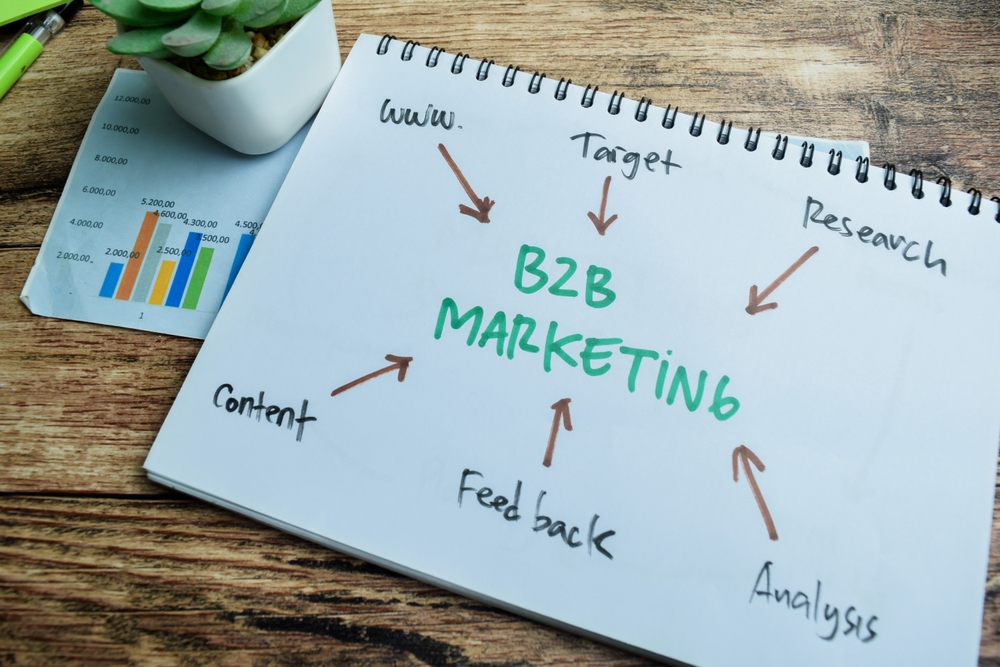B2B marketing is constantly evolving, and staying ahead of the curve requires businesses to embrace new trends and strategies. In today’s competitive landscape, understanding and implementing the latest B2B Content Marketing trends can significantly impact your ability to connect with your audience, drive engagement, and achieve measurable results. Here, we explore the top trends you can’t afford to ignore in 2025.
What is B2B Content Marketing?
B2B (Business-to-Business) content marketing refers to the strategic creation and distribution of valuable content aimed at engaging other businesses, rather than individual consumers. The goal is to build relationships, generate leads, and establish authority within an industry. B2B content can include blogs, white papers, case studies, webinars, and videos, tailored to address the specific pain points and needs of target business audiences. Successful B2B marketing strategy requires a deep understanding of the audience’s challenges and the ability to deliver informative, actionable solutions that help decision-makers in other companies make informed choices.
1. Personalization at Scale
In the era of data-driven marketing, personalization is no longer optional. B2B buyers expect tailored experiences that address their unique challenges and goals. Leveraging advanced analytics and AI technologies, businesses can deliver personalized content at scale. This includes dynamic email campaigns, personalized landing pages, and targeted social media ads.
2. Video Content Dominance
Video marketing to be a powerful tool in B2B content marketing. Whether it’s explainer videos, webinars, or customer success stories, video content is an engaging way to communicate complex ideas. Live streaming events and virtual product demonstrations have also become popular, allowing businesses to connect with prospects in real-time.
3. Interactive Content for Engagement
Interactive content, such as quizzes, calculators, and polls, is gaining traction as a way to boost engagement. For B2B marketers, interactive content can help educate prospects, generate leads, and guide decision-making processes.
4. Thought Leadership and Long-Form Content
Establishing your brand as an industry authority remains crucial in B2B marketing. Thought leadership content, such as white papers, research reports, and in-depth articles, allows you to showcase your expertise and build trust with your audience. Long-form content is particularly effective for addressing complex topics and providing actionable insights.
5. AI-Powered Content Creation
Artificial intelligence is revolutionizing the way content is created and distributed. AI tools for digital marketing can assist in generating topic ideas, optimizing headlines, and even drafting articles. While AI should not replace human creativity, it can streamline the content creation process and improve efficiency. Additionally, AI-driven tools can help analyze the performance of your B2B content marketing efforts, enabling you to make data-informed decisions.
6. Focus on Account-Based Marketing (ABM)
Account-based marketing continues to be a game-changer for B2B companies. ABM involves targeting high-value accounts with highly personalized campaigns, often aligning marketing and sales teams to deliver a cohesive message. Content tailored to specific accounts—such as customized case studies or industry-specific white papers—can significantly improve engagement and conversion rates.
7. Sustainability and Social Responsibility
Today’s buyers are more conscious of sustainability and corporate social responsibility. Showcasing your brand’s commitment to these values through your content can enhance your reputation and attract like-minded clients. Share stories about your company’s green initiatives, community involvement, or ethical business practices.
8. Voice Search Optimization
As voice search becomes increasingly popular, optimizing your content for voice queries is essential. B2B marketers need to consider how their target audience uses voice-enabled devices to search for information. Focus on creating conversational content that answers common questions succinctly. Including FAQ sections and structured data markup can improve your visibility in voice search results.
9. Integration of Augmented Reality (AR) and Virtual Reality (VR)
While AR and VR were once considered futuristic, they are now becoming viable tools in B2B content marketing. These technologies can be used to create immersive experiences, such as virtual product tours, interactive training modules, or augmented reality demonstrations. By offering innovative ways to showcase your products or services, AR and VR can help your brand stand out.
10. Emphasis on Analytics and ROI Measurement
Measuring the effectiveness of your content marketing efforts is more critical than ever. Advanced analytics tools enable B2B marketers to track key metrics, such as engagement rates, lead quality, and conversion rates. Use these insights to refine your strategy and allocate resources more effectively. Demonstrating a clear ROI from your content marketing initiatives helps secure buy-in from stakeholders and ensures long-term success.
Conclusion
Adopting these top B2B Content Marketing trends will help your business stay ahead in an ever-evolving digital landscape. From personalized experiences to cutting-edge technologies like AR and AI, the opportunities for innovation are vast. By keeping a finger on the pulse of these trends and integrating them into your strategy, you can build stronger connections with your audience, enhance your brand’s authority, and drive sustainable growth. Remember, the key to success lies in staying adaptable and continually refining your approach to meet the changing needs of your market.


